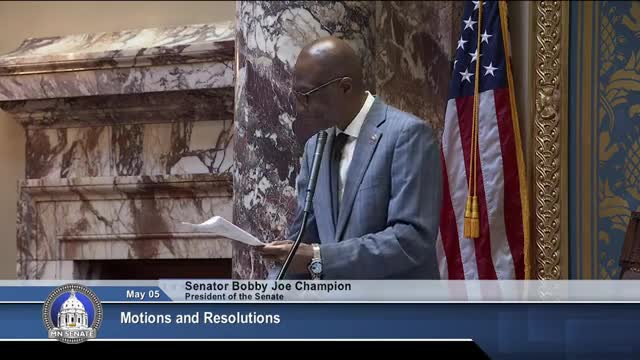Article not found
This article is no longer available. But don't worry—we've gathered other articles that discuss the same topic.

Senate introduces resolution reaffirming Minnesota–Taiwan sister-state ties; referred to rules

Senate passes bill allowing expanded local criminal background checks to aid trafficking investigations, 65-0

Senate approves technical follow-up to DCYF recodification after debate, 53-12

